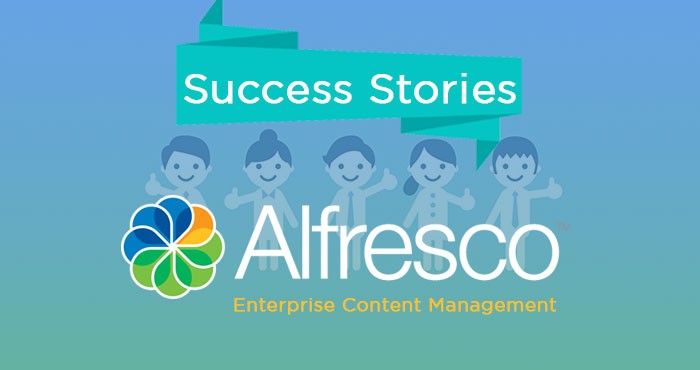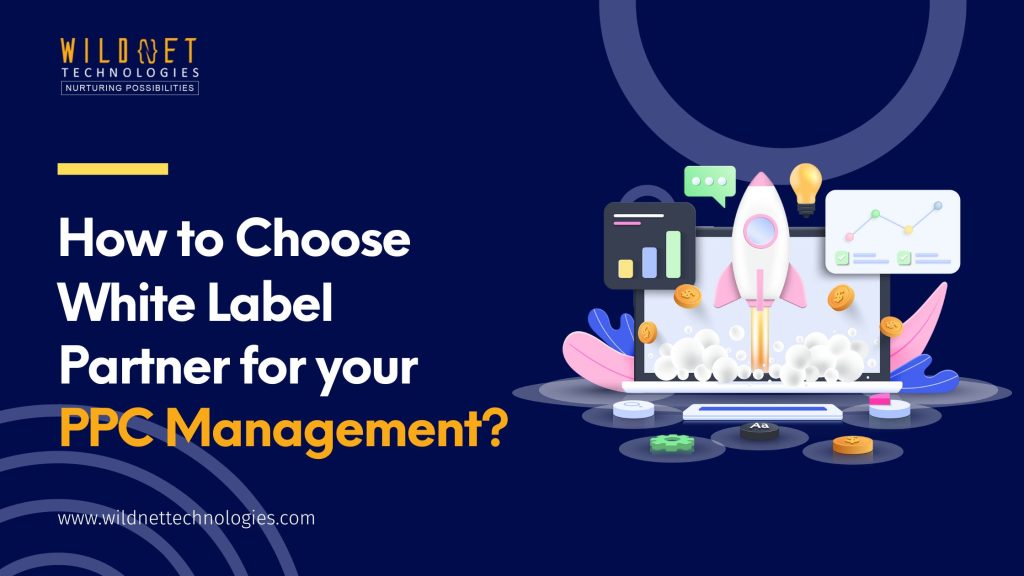Artificial Intelligence (AI) is transforming the world of marketing. It’s not just a buzzword, but a powerful tool that’s reshaping how businesses strategize and communicate with their customers.
AI’s ability to analyze vast amounts of data is revolutionizing marketing strategies. It uncovers patterns and insights that were previously hidden, enabling businesses to make more informed decisions.
One area where AI shines is content creation. AI-driven tools can generate high-quality, relevant content quickly, saving marketers valuable time and resources. This enables businesses to maintain a consistent online presence and effectively engage their audience.
AI also plays a significant role in personalizing marketing messages. By analyzing customer data, AI can tailor messages to individual customers, enhancing their experience and increasing engagement.
Predictive analytics is another area where AI is making a significant impact. By forecasting consumer behavior, businesses can anticipate customer needs and adjust their strategies accordingly.
AI is also enhancing customer service through chatbots and virtual assistants. These tools offer 24/7 support, responding to customer queries promptly and efficiently.
In the realm of SEO and social media marketing, AI is a game-changer. It identifies trends and optimizes content, helping businesses rank higher in search results and engage more users on social platforms.
This article will delve into these topics and more, exploring how AI can support marketing strategies in business.
The Evolution of AI in Marketing
The journey of AI in marketing has been remarkable. From its inception as a futuristic concept, it has evolved into an indispensable tool for businesses worldwide. Initially, AI’s applications were limited, focusing on basic data processing tasks. However, with advancements in machine learning and data analytics, AI has significantly expanded its capabilities.
Today, AI’s role in marketing is multifaceted and dynamic. It encompasses everything from data analysis to automated customer interactions. AI empowers marketers to leverage real-time insights, enabling them to make more informed decisions. This evolution has transformed marketing from a reactive to a proactive discipline, where strategies are driven by predictive analytics.
As AI continues to evolve, its impact on marketing strategies will undoubtedly grow. Businesses are increasingly adopting AI technologies to stay competitive in a digital-first world. The evolution of AI in marketing is ongoing, promising to deliver even more innovative and efficient solutions for businesses.
Understanding AI and Its Capabilities
Artificial Intelligence (AI) is more than a buzzword; it’s a game-changing tool. At its core, AI mimics human intelligence, executing tasks with precision and speed.
One of AI’s primary strengths lies in processing vast data sets rapidly. This capability enables businesses to derive insights that would otherwise be difficult to detect through human analysis alone.
AI’s adaptability and continuous learning make it indispensable. As it absorbs more data, AI refines its algorithms, becoming more innovative and more effective in solving complex marketing challenges.
AI Content Creation: Revolutionizing Brand Messaging
AI content creation transforms how brands connect with audiences. It generates content that’s not only relevant but also engaging.
With AI, marketers can produce large volumes of content quickly and efficiently. This is particularly useful for maintaining a consistent brand presence across multiple channels.
AI tools analyze user interactions to suggest content ideas that resonate with specific audiences. This level of personalization enhances customer engagement, fostering stronger brand loyalty.
Moreover, AI-driven content creation ensures messages are aligned with consumer interests and trends. This minimizes the guesswork, allowing marketers to focus on crafting strategic narratives that captivate their target markets.
AI Marketing Tools: Enhancing Efficiency and Precision
AI marketing tools offer businesses unrivaled efficiency and precision. These tools help automate repetitive tasks, freeing up marketers to focus on strategic initiatives.
For instance, AI can optimize email campaigns by determining the best times to send messages and segmenting audiences for greater impact. This level of specificity can significantly improve open rates and conversions.
In addition to automation, AI tools offer in-depth analytics that inform decision-making. They pinpoint patterns and suggest ways to enhance marketing efforts, increasing overall effectiveness.
Additionally, AI tools empower marketers to refine ad spend, ensuring budgets are utilized wisely. By predicting the most profitable channels and times for advertising, AI helps maximize return on investment, ultimately driving business growth.
Personalization at Scale with AI
AI enables businesses to achieve personalization on a massive scale. It tailors experiences to individual preferences, effectively meeting customers’ needs.
By analyzing customer data, AI crafts personalized recommendations that resonate with specific users. This significantly enhances customer satisfaction and loyalty.
With AI, marketers can deliver timely messages through preferred channels. This consistent engagement helps nurture customer relationships and boosts retention rates.
Moreover, AI predicts future customer needs based on historical data. This proactive approach allows businesses to stay ahead in competitive markets, ensuring they remain relevant to their audiences.
Predictive Analytics and Consumer Behavior Forecasting
Predictive analytics is a powerful tool powered by AI. It forecasts consumer behavior, equipping businesses with actionable insights for strategic decisions.
By analyzing historical data, AI predicts future trends and buying patterns. This helps marketers devise campaigns that align with customer expectations.
AI-driven insights reveal opportunities and potential challenges in the market. This foresight empowers businesses to innovate and adapt, maintaining their competitive edge.
Real-Time Decision Making and Customer Interactions
AI excels in facilitating real-time decision-making, crucial for dynamic market environments. It processes information instantly, enabling swift responses to customer interactions.
Through real-time data analysis, AI identifies customer needs as they arise. This ensures businesses can engage users with relevant offers and solutions promptly.
The immediacy AI offers enhances customer experiences, building trust and satisfaction. This responsiveness not only drives customer retention but also fosters long-term brand loyalty.
AI-Driven Customer Experience and Service
AI has transformed customer service and experience by offering seamless, personalized interactions. Customers expect businesses to understand their individual needs, and AI effectively meets that expectation.
AI integrates data from various touchpoints, providing a unified view of the customer journey. This comprehensive understanding enables companies to tailor interactions and significantly improve customer satisfaction.
Moreover, AI-driven solutions enable proactive service, anticipating problems before they arise. This anticipation leads to solutions that can enhance customer happiness and reduce churn rates.
The integration of AI into customer service systems enables faster and more precise responses. It ensures customers enjoy a superior experience every time they interact with the business.
Chatbots and Virtual Assistants: The 24/7 Marketing Workforce
Chatbots and virtual assistants are revolutionizing customer interactions. Available 24/7, they provide instant support, meeting customer demands at any time.
These AI-powered tools efficiently handle routine inquiries, freeing up human resources for more complex tasks. This balance boosts overall productivity and enhances service quality.
Additionally, chatbots improve with each interaction. Their evolving capabilities lead to increasingly sophisticated responses, continually enriching the overall customer experience.
Enhancing the Customer Journey with AI Insights
AI offers valuable insights into the customer journey, identifying key touchpoints and potential pain areas. This understanding allows businesses to refine and optimize every phase of the journey.
By analyzing data, AI uncovers patterns in customer behavior. These insights help craft more effective marketing strategies that engage users at critical moments.
Furthermore, AI predicts future customer needs and desires. This foresight enables the creation of personalized experiences that make each customer feel valued, fostering loyalty and commitment.
AI in SEO and Social Media Marketing
AI plays a pivotal role in optimizing SEO and managing social media. These technologies streamline processes and effectively drive engagement.
For SEO, AI helps identify trends and analyze data to optimize web content for improved search engine rankings. This ensures higher rankings and increased visibility in search engines.
On social media platforms, AI analyzes user engagement patterns. It then tailors content to maximize interaction and audience reach.
Moreover, AI tools provide insights into competitors’ strategies. By analyzing these insights, businesses can refine their own social media approaches and gain a competitive edge.
Voice Search Optimization and AI
Voice search is rapidly transforming how users seek information online. AI facilitates this shift by understanding natural language and voice commands.
With voice search, AI-driven SEO strategies must evolve to meet the changing needs of users. It’s crucial to optimize content for conversational queries to match users’ spoken language patterns.
As voice-activated devices gain popularity, businesses must embrace AI for SEO. This adaptation ensures that their content remains relevant and easily accessible via voice search.
Programmatic Advertising: AI’s Role in Ad Placement
Programmatic advertising leverages artificial intelligence (AI) to automate ad buying. This ensures more accurate and efficient ad placements.
AI analyzes vast datasets to determine the best platforms and times to display ads. This precision increases the likelihood of effectively reaching target audiences.
By automating the process, AI reduces the time and effort needed for ad placements. Marketers can focus on strategy rather than execution, enhancing overall campaign success.
Measuring Success: AI and Marketing ROI
Effective marketing strategies rely on accurately measuring ROI. AI provides powerful tools for quantifying marketing effectiveness.
With AI analytics, marketers gain deep insights into campaign performance. These insights help pinpoint what drives engagement and conversions.
AI also provides real-time data, enabling swift adjustments. This adaptability ensures marketing efforts consistently align with business goals.
Lead Scoring and Conversion Rate Optimization with AI
AI revolutionizes the lead scoring process by automating it. This automation prioritizes leads based on their likelihood to convert.
Machine learning algorithms analyze patterns of customer behavior. By doing so, they predict which leads are most promising with precision.
Moreover, AI enhances conversion rate optimization by personalizing user experiences. Tailored recommendations and offers drive higher conversion rates efficiently.
Ethical Considerations and Data Privacy in AI Marketing
Integrating AI into marketing strategies raises critical ethical issues. Data privacy is a top concern as businesses collect vast amounts of customer data.
Marketers must ensure compliance with data protection regulations such as GDPR. These regulations protect customer information and build trust.
Transparency is also vital. Customers need to know how their data is being used and the logic behind AI decisions. This transparency fosters a stronger relationship between brands and consumers.
Ethical AI use goes beyond just compliance; it’s about respecting user privacy and preferences. Businesses must strive to balance AI-driven insights with ethical marketing practices.
Consider the emotional impact of AI in customer interactions. Ethical AI applications enhance user experience without compromising individual rights. As AI evolves, maintaining ethical vigilance remains a priority for achieving sustainable, customer-focused marketing success.
Implementing AI in Your Marketing Strategy
Adopting AI in marketing requires a transparent, strategic approach. Begin by identifying specific goals you aim to achieve with AI. Whether you focus on personalizing customer experiences or streamlining operations, clarity on your objectives is critical.
Next, assess your current data infrastructure. Successful AI implementation often hinges on robust data management systems. Ensure that your data is clean, organized, and accessible for AI algorithms to analyze effectively.
Collaboration between departments is essential. Marketing, IT, and operations teams should work together seamlessly to achieve optimal results. This joint effort can help in tailoring AI solutions that align with business needs and marketing objectives.
Pilot projects are a wise start to minimize risks. Testing AI initiatives on a smaller scale helps tweak strategies before full-scale deployment. As these initiatives evolve, adjust your approach based on insights and feedback to achieve better results.
Choosing the Right AI Marketing Tools
Selecting the right AI tools can significantly impact your marketing strategy. Begin by evaluating your company’s specific needs. Consider aspects such as automation, customer insights, and data analysis requirements.
Explore the diverse array of AI marketing tools available on the market. These tools range from AI-driven content creation platforms to advanced analytics software. Each offers unique benefits tailored to different marketing objectives.
It’s crucial to consider integration capabilities. Opt for AI tools that seamlessly integrate with your existing marketing technologies. This compatibility ensures a smooth workflow and maximizes the potential of your AI initiatives.
Training and Upskilling for AI Adoption
Training staff is essential for successful AI adoption. Begin by identifying skill gaps within your marketing team. Focus on both technical and strategic skills needed to maximize AI benefits.
Offer practical training sessions. Interactive workshops or online courses can effectively upskill team members. These opportunities should focus on understanding AI tools and interpreting insights generated by AI.
Promote a culture of continuous learning within your organization. Encourage teams to stay informed about the latest advancements in AI. This approach ensures your business remains agile and competitive in the rapidly evolving marketing landscape.
Conclusion: The Future of AI in Marketing
Artificial Intelligence (AI) is reshaping the future of digital marketing, and Wildnet’s digital marketing services are at the forefront of this transformation. With the power to revolutionize how brands connect with their audiences, AI is becoming an integral part of every smart marketing strategy. As technology advances, Wildnet helps businesses stay ahead by leveraging cutting-edge AI-driven tools and insights.
The future of digital marketing lies in hyper-personalization powered by AI. Through advanced predictive analytics, Wildnet enables brands to anticipate customer needs and deliver tailored experiences across multiple touchpoints. This level of precision fosters stronger engagement and improved conversion rates.
At the same time, Wildnet remains committed to ethical digital marketing. As AI integration grows, so does the need for transparency and data privacy. We prioritize responsible use of AI to ensure compliance and maintain consumer trust.
In conclusion, AI continues to elevate digital marketing, and Wildnet’s digital marketing services are designed to help businesses capitalize on this evolution. Embracing AI today with Wildnet gives your brand a competitive edge in an ever-changing digital landscape.
Read more
How to Access Grok 3 AI: A Step-by-Step Guide
Grok 3 AI vs. ChatGPT vs. DeepSeek AI: Which AI Reigns Supreme?
The Role of AI in the Luxury eCommerce Industry’s Transformation
What is DeepSeek AI? Everything You Need to Know in 2025
Impact of AI on Software Consulting in 2025: Must-Know for All
Q. How does AI improve marketing strategies in business?
Ans. AI enables businesses to make more informed marketing decisions through predictive analytics, audience segmentation, and campaign optimization, ultimately enhancing their marketing effectiveness.
Q. Can AI personalize marketing campaigns?
Ans. Yes, AI can analyze user behavior to deliver highly personalized content, offers, and messaging that boost engagement and conversions.
Q. What tasks can AI automate in marketing?
Ans. AI automates tasks such as email marketing, customer segmentation, ad placement, and performance tracking, saving time and enhancing efficiency.
Q. Is AI for content creation in marketing?
Ans. Absolutely. AI tools can generate content ideas, assist in copywriting, and optimize content for SEO and audience relevance.
Q. Does AI help in understanding customer behavior?
Ans. Yes, AI analyzes large datasets to uncover patterns in customer behavior, allowing marketers to tailor their strategies more effectively.






